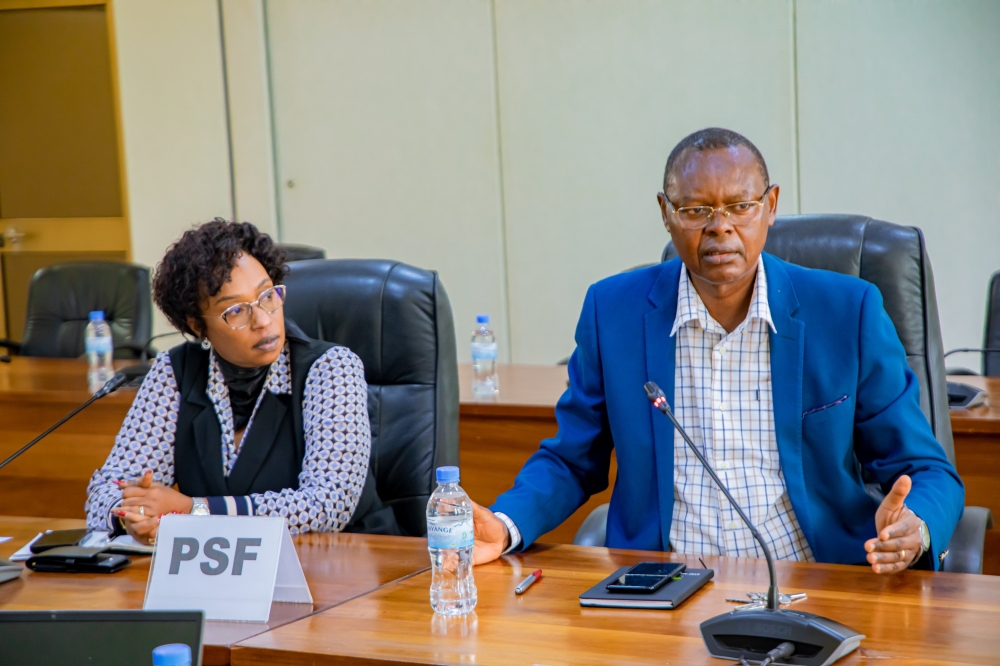

Officials from the Private Sector Federation (PSF) on April 24 emphasised the importance of sustained collaboration and targeted initiatives to promote unity and reconciliation as a pillar for national development.
Speaking to the Parliamentary Committee on Unity, Human Rights, and the Fight Against Genocide, Thérèse Sekamana, the Chairperson of the Specialized Cluster at PSF, stressed the need for continued engagement beyond the annual commemoration of the 1994 Genocide against the Tutsi in Rwanda.
ALSO READ: Unity and reconciliation through the eyes of youth in a Rwandan village
"We work with institutions like Ibuka during commemoration, but what happens afterward? We need to keep that collaboration going through regular training and consultations,” Sekamana said, suggesting that working closely with institutions mandated to promote unity and reconciliation would help extend support to entrepreneurs beyond PSF membership, especially those who may not be directly affiliated with the organization.
Sekamana also highlighted the need for psychosocial training for human resource professionals and private sector managers to address unconscious bias that can lead to discrimination in the workplace.
ALSO READ: Inside Rwanda’s reconciliation journey, 31 years after the Genocide
"Some decisions may be influenced by past experiences without managers even realising it. With proper training, they can become more aware and intentional in fostering inclusive environments,” she noted.
To further foster national unity, PSF is advocating for intergenerational discussions between older entrepreneurs and the youth. Sekamana said these conversations would help young people understand the country’s history and how it has shaped the business environment today.
"The youth entrepreneurs often don&039;t know how things were done in the past. By learning from experienced entrepreneurs, they can be inspired and better understand the journey of rebuilding,” she said.
Sekamana also called for the creation of specialized support programmes targeting historically disadvantaged groups such as women, youth, people with disabilities, and genocide survivors.
ALSO READ: Kwibuka24: PSF builds houses for vulnerable Genocide survivors
"There are individuals, like women who lost their spouses during the 1994 Genocide against the Tutsi or children who grew up without parents, who face greater challenges in business. They need tailored support to help them thrive,” she explained.
Rethinking membership and policy
Membership in PSF is currently not mandatory for doing business in Rwanda. Sekamana pointed out that entrepreneurs often only approach PSF when they need advocacy, and suggested that a formal policy or law could help bring more private sector actors under the umbrella for better coordination.
Callixte Kanamugire, the Chief Advocacy Officer at PSF, echoed the need for greater involvement from all entrepreneurs.
"We are working to strengthen the skills of private sector stakeholders in unity and reconciliation. Additionally, we are increasing our research efforts, including recent studies on business institutions,” he said.


